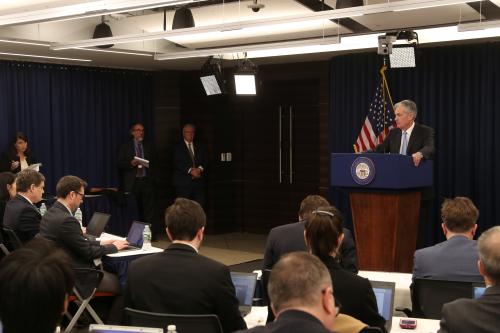The U.S. economy is finally on the mend, but that isn’t muting congressional—particularly Republican—criticism of the Federal Reserve, as Janet Yellen learned at the House Financial Services Committee hearing this week.
Members of Congress long have used congressional hearings to beat up on the Fed chair. It’s as if there was an implicit deal: Congress gives the Fed a lot of independence to pursue its statutory goals of price stability and maximum sustainable employment, and feels free to criticize the Fed with frequency and occasional venom, but stops of short of truly interfering with the making of monetary policy.
But there are signs that old deal is falling apart. Republicans are backing legislation that would give the Government Accountability Office more leeway to evaluate monetary policy decisions (“Audit the Fed“) and would require the Fed to explain why it isn’t following a monetary policy rule devised by Stanford’s John Taylor.
Part of this is simply partisan posturing, more a symptom of the climate in Congress than a targeted attack on the Fed. The chairman of the House committee, Jeb Hensarling, suggested at one point this week that Ms. Yellen was doing something wrong—and suspiciously partisan—by meeting with the Treasury secretary frequently. I don’t recall anyone ever questioning Alan Greenspan when he was meeting with Larry Summers or Bob Rubin.
But part of this reflects palpable congressional—and public—concern that the Fed’s role in the economy expanded so much during and after the financial crisis that we need new and better ways to hold the Fed accountable to the nation’s democratically elected leadership.
The Hutchins Center will take a timely look at these issues Monday morning, March 2. In particular, we’ll focus on the unusual governance of the regional Federal Reserve Banks, created in a Wilsonian compromise in 1913, with a provocative paper by Peter Conti-Brown, soon to be a professor at the University of Pennsylvania’s Wharton School, and a response from Charles Plosser, who is retiring this week as president of the Philadelphia Federal Reserve Bank. We’ll also look at how the Fed’s expanded role in maintaining financial stability may conflict with its monetary policy independence with Viral Acharya of New York University and Jeremy Stein of Harvard University, a former Fed governor.
Then we’ll address directly the current state of Fed-congressional relations with Ben Bernanke, the former Fed chairman and now our Brookings colleague; Barney Frank, the always interesting former chairman the House Financial Services Committee; Ruth Porat, the CFO of Morgan Stanley, and Sarah Binder, a George Washington University political scientist and Brookings colleague who has studied all this.


Commentary
Congress vs. Yellen: Partisanship or accountability?
February 26, 2015